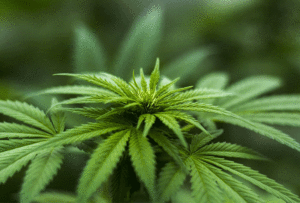Connecticut Senate Democrats expect to renew a push to legalize recreational marijuana this year, reviving an effort that seemed to have traction last year but ultimately came to naught.
 Cannabis legalization is one of eight proposals included in “A Smart & Responsible Connecticut,” an agenda for the 2020 legislative session released yesterday by Senate President Pro Tem Martin Looney (D-New Haven), Senate Majority Leader Bob Duff (D-Norwalk), and other members of the Senate Democratic caucus.
Cannabis legalization is one of eight proposals included in “A Smart & Responsible Connecticut,” an agenda for the 2020 legislative session released yesterday by Senate President Pro Tem Martin Looney (D-New Haven), Senate Majority Leader Bob Duff (D-Norwalk), and other members of the Senate Democratic caucus.
“The prohibition of the possession and sale of cannabis has failed in its intent to stop the sale or use of cannabis,” the document states. “The ”˜war on drugs”™ is a similar failure and has led to a staggering racial disparity when it comes to enforcement of laws criminalizing cannabis.”
“In 2020, the Senate Democratic Caucus will take action to legalize, tax and regulate the retail sale, personal growth and recreational use of cannabis by individuals over 21 years old,” it adds.
Gov. Ned Lamont has also spoken in favor of revisiting the idea during the upcoming legislative session, which is scheduled to run Feb. 5 through May 6.
The state Judiciary Committee approved several bills last spring that would have legalized possession of recreational marijuana for adults 21 and older. SB 1085 established 1.5 ounces as the amount of marijuana that could be legally possessed for recreational use; set penalties for selling marijuana to minors; and provided for people who previously had been convicted of marijuana possession to petition courts to have those records expunged.
SB 1085 passed mostly along party lines: no Republicans voted for it, while a few Democrats voted against it.
Advocates have projected that Connecticut could make $70 million in the first year of legalization and approximately $160 million in each following year. Recreational marijuana shops in Massachusetts took in over $420 million in sales in the first full calendar year of legalization, according to state data. The Bay State imposes roughly 17% to 20% in taxes on marijuana, including a 6.25% sales tax, a 10.75% excise tax and an optional local tax of up to 3%.
Opponents question whether such a move would be in the best interests of public safety.




















